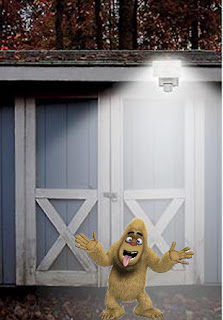Lights
- Details
- Category: Articles
- Published: Wednesday, 30 March 2022 20:46
- Written by Super User
- Hits: 2327
There is much debate on how lights affect research in the field. Experienced researchers go into the woods at night with little lighting, eager for encounters with Bigfoot in the dark. This is not to say they don’t carry flashlights, but the option to use the light until absolutely necessary is what many do.
When in the field, do not shine your flashlight at every noise or shadow, as this will usually force the Bigfoot to maintain a healthy safe distance away from you and decrease your chances of an encounter.
Bigfoot will avoid light sources whenever possible, and in this respect, always choose locations to research that lighting will not have an effect on your chances of bringing Bigfoot close in to you. Use lighting to also benefit you, pick spots to sit that allow you to view ridgelines and other prominent features with the available lighting provided by stars, the moon, and even residual lighting from yard lights and housing if possible. Sometimes, you will see movement between yourself and the lighting.
The MABRC Senior Researchers have also been using small cameras mounted on spotlights, so that when the necessity to light up an area where it’s suspected a Bigfoot is located at, the camera will record wherever the light shines at.
Always remember, that when using a flashlight, it can become a showstopper, bringing a halt to any activity being committed by a Bigfoot in your immediate vicinity if you shine it at them.
There are some cases where the Bigfoot will continue to stay in the area, throwing rocks and doing other intimidation tactics to show their displeasure at the lights being shined into the woods around them.
Using small camp lanterns in your camp can also be used to spot eyeshine from Bigfoot around your camp or location, be sure though to keep the lanterns behind you, so that it does not affect your night vision.


